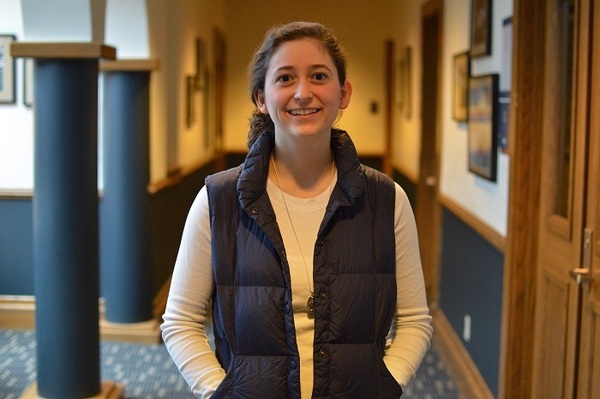"Deaf Catholics and the New Evangelization"
Deaf Catholics and the New Evangelization
Grace Agolia '17
Theology Major, CST Minor
Advisor: Professor Bill Purcell

In America today, about 90 percent of Catholics who are deaf are unevangelized. This is largely a result of poor catechesis, lack of appropriate resources, decreased diocesan support, and few trained pastoral ministers who can communicate in sign language and understand Deaf culture. In this time of continued liturgical renewal after the reforms of the Second Vatican Council, the Church is engaged in the mission of the “new evangelization.” Amidst patterns of increasing globalization and use of communication technology, this is a call for the spiritual rejuvenation of all people, especially responding to the reality that many baptized Catholics in the West have received the sacraments of initiation but have not been formed in the practice of faith. For deaf people who are often marginalized in Church life, this new evangelization is not only a matter of accessibility but also of inculturation. By attending to the experience of culturally Deaf Catholics through visits to parishes, interviews, research with primary and secondary sources, and application of theological analysis, I have come to learn the importance of communication as gift for the encounter with love, the rediscovery of beauty for evangelizing joy, and inculturation for the Church’s call to mission. The Catholic Deaf community’s heritage, traditions, values, and linguistic expression that all inform its identity have so much richness to share with our present understanding of liturgy and of the God whom we worship. If we are to take seriously the mandate of the Second Vatican Council that all are to be engaged in “full, conscious, and active” participation, then we must address these issues in theology and pastoral practice today. Evangelization is done in language and culture, and we cannot leave groups of people in isolation if we believe that the Gospel message is for all people. This opportunity for Deaf Catholics to develop and articulate a theological understanding of their experience as grounded in liturgy will help recultivate the imagination of the Church in this age of the new evangelization. In doing so, we can expand our vision of beauty in worship by concretely embodying the Gospel, signing the world with our bodies as expressions of self-giving love.